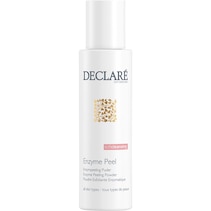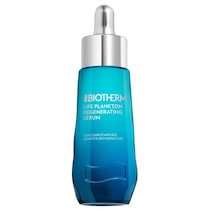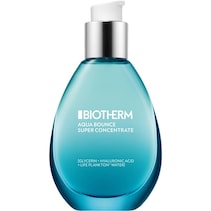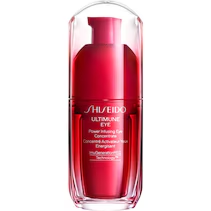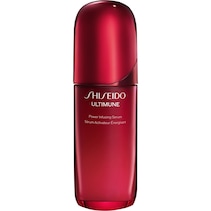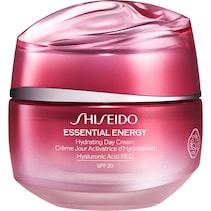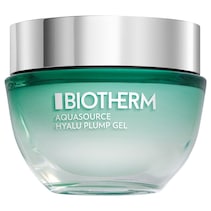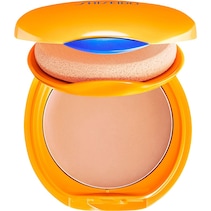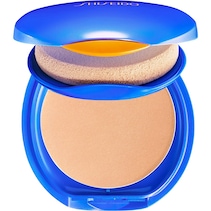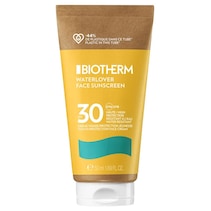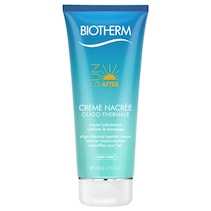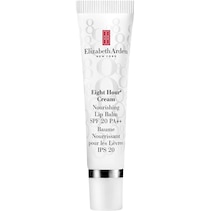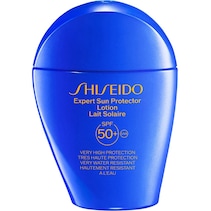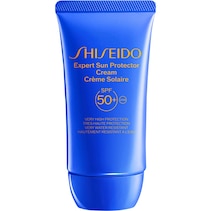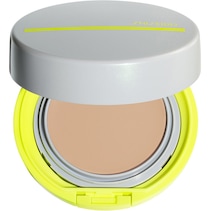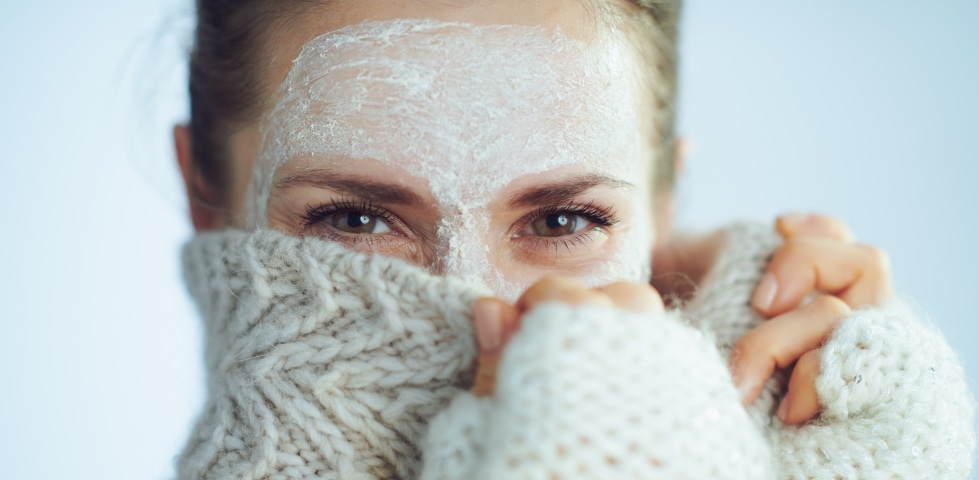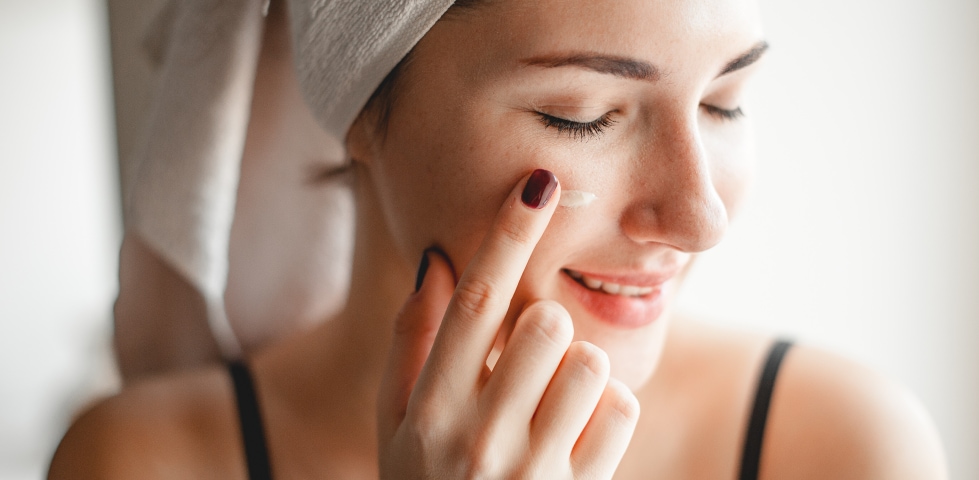
Sensitive skin – the best tips and care routines
Sensitive skin is a widespread phenomenon. A high degree of sensitivity can occur at any age and with any skin type – from dry skin to combination skin to oily skin. There are only a few external signs of sensitive skin. Trust your subjective perception. Our skincare and make-up tips will help you to soothe sensitive and hypersensitive skin and make you feel like yourself again.
24 June 2024 • 4 min. reading time
Table of contents
What does sensitive skin look like?
Sensitive skin is a skin condition that manifests itself through a variety of internal and external factors. The following symptoms are characteristic of sensitive skin:
- the occurrence of itching, redness (flushes), pimples and papules as a result of using skincare products
- a burning sensation on the skin
- dry and flaking skin areas
- a high susceptibility to sunburn and sun allergies
You can recognise sensitive and hypersensitive skin by listening to your body and observing skin reactions closely. Your personal self-assessment – how you feel – is more important than any externally visible symptom of sensitive skin.
Sensitive skin or rosacea?
Sensitive skin and the chronic, inflammatory skin disease rosacea have many symptoms in common – such as reddening of the skin, irritant reactions to certain ingredients with blister formation and high sensitivity to environmental influences. All cases of rosacea result in sensitive skin – especially on the cheeks, chin, forehead and nose. However, it is best to consult a dermatologist to determine whether your symptoms of sensitive skin are indicative of rosacea.
Causes and typical characteristics of sensitive skin
Sensitive skin correlates closely with the condition of the skin barrier – the uppermost, protective skin layer consisting of horny cells and lipids. It is thanks to its stability and high water impermeability that sufficient moisture remains in the skin. If the skin barrier is disturbed, the skin dries out and becomes sensitive. Applying moisturiser will only have a limited effect. If water gets into the skin, it will evaporate and escape within a short time.
If the outer skin layer is restricted in its barrier function, it also absorbs undesirable substances and irritants – such as environmental toxins – which can lead to noticeable and visible skin irritation. Incorrect skincare shifts the pH value of the skin to an alkaline, or basic, level, causing skin irritation. If you regularly spend a lot of time in water – e.g. when swimming, bathing and showering – the outer layer swells and suffers long-term damage. Other factors that cause the skin to react sensitively include contact allergens, strong UV radiation and psychological stress.
What’s the best skincare for sensitive skin?
If your skin reacts sensitively, you should make sure to consistently avoid skincare products that contain typical irritants – such as perfume, alcohol, fragrances and essential oils. If your skin reacts particularly sensitively despite gentle skincare and shows clearly visible symptoms – such as sudden redness – you should scrutinise the list of ingredients. A wide variety of skincare ingredients – e.g. urea, fruit acids, retinoids, sulphates, lanolin or vitamins C and E – can cause your skin to react sensitively.
What soothes sensitive skin?
To soothe sensitive skin, it is important to take skin concerns seriously. High-quality skincare for sensitive and hypersensitive skin is perfectly tailored to the needs of sensitive skin and does not contain any substances that typically cause irritation. The words “non-comedogenic” on the packaging indicate that the skincare product does not contain substances – such as mineral oils and fats – that clog pores and therefore irritate the skin.
Tip
It is often necessary to test the compatibility of certain skincare products and gradually find the perfect skincare product palette through trial and error.
Cleanse sensitive skin the right way
If you suffer from sensitive skin, you should minimise your skincare routine and give it longer to recover. Cleansing too intensively with active cleansing substances has a negative effect on the skin barrier. It is sufficient to gently cleanse sensitive skin in the evening before going to bed. The ideal cleansing products are pH-neutral, mild cleansing products with light textures in the form of cleansing milk, cleansing lotion or cleansing balm. In the morning, it is sufficient to wash the skin with lukewarm water.
Peels for sensitive skin
Microfine peels with particularly mild, fine grains and enzyme peels are suitable for removing dead skin cells from sensitive skin and cleaning the pores. The latter completely dispense with mechanical abrasive particles. The exfoliating effect is based on the enzymes they contain. The right time to use a peel is once or twice a week after cleansing the face and before applying moisturiser.
Face moisturiser for sensitive skin
Minimalist moisturisers, lotions and moisturisers with light textures contain active ingredients that soothe the skin and strengthen the skin barrier.
A moisturising serum for sensitive skin provides the skin with an extra portion of moisture and has a nourishing effect. Ideally, you should apply the serum immediately after cleansing, leave it to take effect and then apply your moisturiser.
Sun protection for sensitive skin
Sensitive skin reacts sensitively to UV radiation and – in extreme cases – also to sun protection products with chemical light protection filters. In this case, it is beneficial to use sun creams with the physical filters zinc oxide and titanium dioxide. They act on the surface of the skin and do not penetrate the skin.
Cleansing for sensitive skin
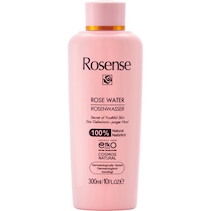
Rosense
Facial care
Skin care
Rose Water

13.95 € 12.56 €
- 10.88 €
- 9.79 €
- 13.95 €
- 12.56 €
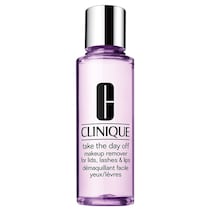
Clinique
Facial cleanser
Skin care
Take The Day Off Make-up Remover

29.95 € 26.96 €
- 23.36 €
- 21.02 €
- 29.95 €
- 26.96 €
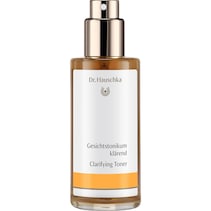
Dr. Hauschka
Facial care
Skin care
Clarifying facial tonic

28.95 € 26.06 €
- 22.58 €
- 20.32 €
- 28.95 €
- 26.06 €
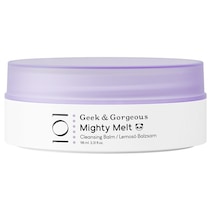
Geek & Gorgeous
101 Basics
Collections
Mighty Melt Cleansing Balm

12.95 € 11.66 €
- 10.10 €
- 9.09 €
- 12.95 €
- 11.66 €
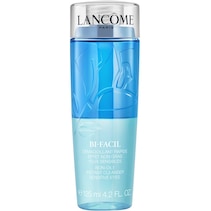
Lancôme
Cleansers & Masks
Facial care
Bi-Facil

18.95 € 17.06 €
- 14.78 €
- 13.30 €
- 18.95 €
- 17.06 €
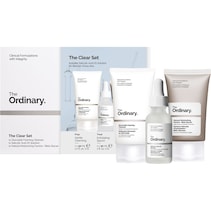
The Ordinary
Cleaning
Face
The Clear Set

18.95 € 17.06 €
- 14.78 €
- 13.30 €
- 18.95 €
- 17.06 €
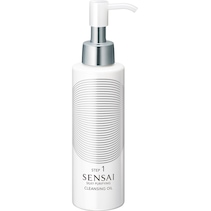
SENSAI
Silky Purifying
Cleansing
Cleansing Oil

65.95 € 59.36 €
- 51.44 €
- 46.30 €
- 65.95 €
- 59.36 €
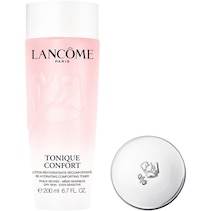
Lancôme
Cleansers & Masks
Facial care
Tonique Confort

34.95 € 31.46 €
- 27.26 €
- 24.53 €
- 34.95 €
- 31.46 €

Clinique
Facial cleanser
Skin care
Take the Day Off Balm

16.95 € 15.26 €
- 13.22 €
- 11.90 €
- 16.95 €
- 15.26 €
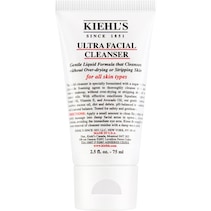
Kiehl's
Cleansing
Facial care
Ultra Facial Cleanser

14.95 € 13.46 €
- 11.66 €
- 10.49 €
- 14.95 €
- 13.46 €
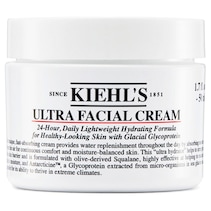
Kiehl's
Moisturiser
Facial care
Ultra Facial Cream

21.95 € 19.76 €
- 17.12 €
- 15.41 €
- 21.95 €
- 19.76 €
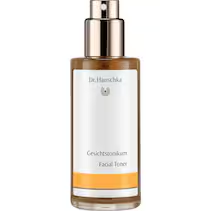
Dr. Hauschka
Facial care
Skin care
Facial tonic

26.95 € 24.26 €
- 21.02 €
- 18.92 €
- 26.95 €
- 24.26 €
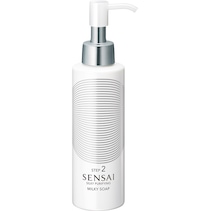
SENSAI
Silky Purifying
Cleansing
Milky Soap

65.95 € 59.36 €
- 51.44 €
- 46.30 €
- 65.95 €
- 59.36 €
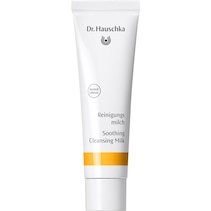
Dr. Hauschka
Facial cleansing
Skin care
Cleansing milk

6.95 € 6.26 €
- 5.42 €
- 4.88 €
- 6.95 €
- 6.26 €
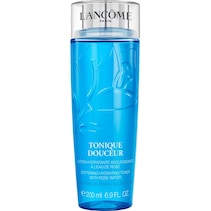
Lancôme
Cleansers & Masks
Facial care
Tonique Douceur

47.95 € 43.16 €
- 37.40 €
- 33.66 €
- 47.95 €
- 43.16 €
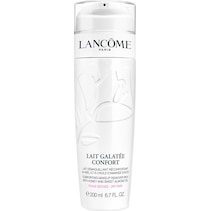
Lancôme
Cleansers & Masks
Facial care
Galateé Confort

25.95 € 23.36 €
- 20.24 €
- 18.22 €
- 25.95 €
- 23.36 €
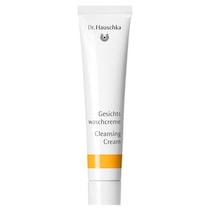
Dr. Hauschka
Facial cleansing
Skin care
Face wash cream

6.95 € 6.26 €
- 5.42 €
- 4.88 €
- 6.95 €
- 6.26 €
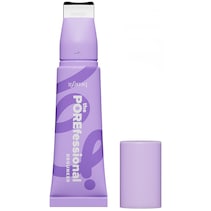
Benefit
Facial cleansing
Face
The POREfessional Degunker
Cleansing routine for blackheads & pores

39.00 € 35.10 €
- 30.42 €
- 27.38 €
- 39.00 €
- 35.10 €
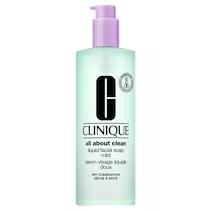
Clinique
3-Step skin care system
3-Phase system care
Liquid Facial Soap Mild Skin

29.95 € 26.96 €
- 23.36 €
- 21.02 €
- 29.95 €
- 26.96 €
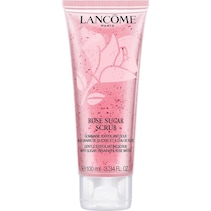
Lancôme
Cleansers & Masks
Facial care
Rose Sugar Scrub

26.95 € 24.26 €
- 21.02 €
- 18.92 €
- 26.95 €
- 24.26 €
Facial scrub
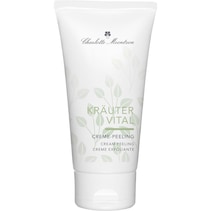
Charlotte Meentzen
Kräutervital
Care
Cream peeling

12.40 € 11.16 €
- 9.67 €
- 8.70 €
- 12.40 €
- 11.16 €
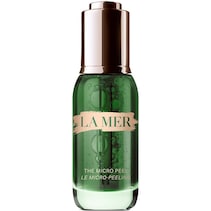
La Mer
Serums
Facial care
The Micro Peel Oil

284.95 € 256.46 €
- 222.26 €
- 200.03 €
- 284.95 €
- 256.46 €
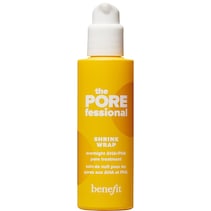
Benefit
Facial care
Face
Overnight AHA+PHA Poren-Treatment

49.50 € 44.55 €
- 38.61 €
- 34.75 €
- 49.50 €
- 44.55 €
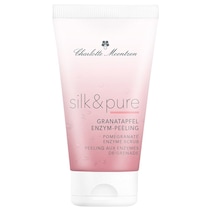
Charlotte Meentzen
Silk & Pure
Care
Pomegranate enzyme peeling

19.90 € 17.91 €
- 15.52 €
- 13.97 €
- 19.90 €
- 17.91 €
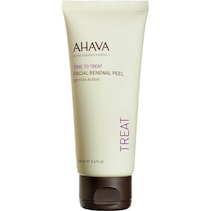
Ahava
Time To Treat
Facial care
Facial Renewal Peel

37.95 € 34.16 €
- 29.60 €
- 26.64 €
- 37.95 €
- 34.16 €
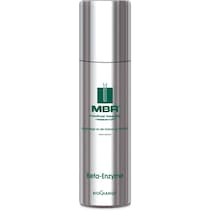
MBR Medical Beauty Research
BioChange
Facial care
Beta-Enzyme

100.95 € 90.86 €
- 78.74 €
- 70.87 €
- 100.95 €
- 90.86 €
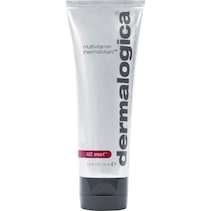
Dermalogica
Age Smart
Skin care
MultiVitamin Thermafoliant

79.00 € 71.10 €
- 61.62 €
- 55.46 €
- 79.00 €
- 71.10 €
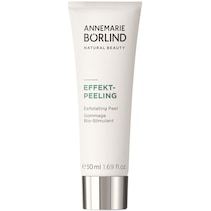
ANNEMARIE BÖRLIND
SPECIAL CARE
Facial care
Effect-Peeling

29.95 € 26.96 €
- 23.36 €
- 21.02 €
- 29.95 €
- 26.96 €
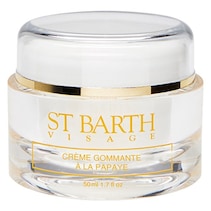
LIGNE ST BARTH
VISAGE
Care
Papaya peeling cream

85.95 € 77.36 €
- 67.04 €
- 60.34 €
- 85.95 €
- 77.36 €
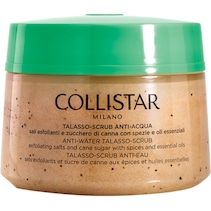
Collistar
Special Perfect Body
Body care
Anti-Water Talasso-Scrub

34.95 € 31.46 €
- 27.26 €
- 24.53 €
- 34.95 €
- 31.46 €
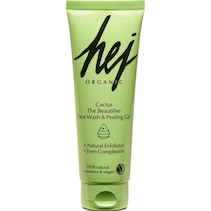
Hej Organic
Cleansing
Facial care
The Beautifier Face Wash & Peeling Gel Cactus

5.95 € 5.36 €
- 4.64 €
- 4.18 €
- 5.95 €
- 5.36 €

Collistar
Special Perfect Body
Body care
Anti-Age Talasso-Scrub

34.95 € 31.46 €
- 27.26 €
- 24.53 €
- 34.95 €
- 31.46 €
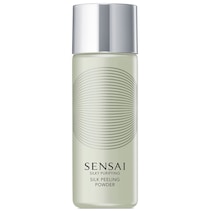
SENSAI
Silky Purifying
Cleansing
Silk Peeling Powder

85.95 € 77.36 €
- 67.04 €
- 60.34 €
- 85.95 €
- 77.36 €
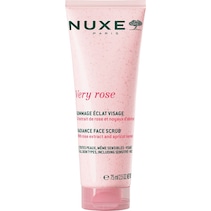
Nuxe
Very Rose
Facial care
Radiance Face Scrub

22.95 € 20.66 €
- 17.90 €
- 16.11 €
- 22.95 €
- 20.66 €
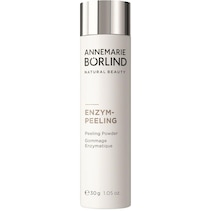
ANNEMARIE BÖRLIND
SPECIAL CARE
Facial care
Enzym-Peeling

37.95 € 34.16 €
- 29.60 €
- 26.64 €
- 37.95 €
- 34.16 €
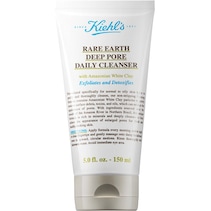
Kiehl's
Cleansing
Facial care
Deep Pore Daily Cleanser
Rare Earth

28.95 € 26.06 €
- 22.58 €
- 20.32 €
- 28.95 €
- 26.06 €
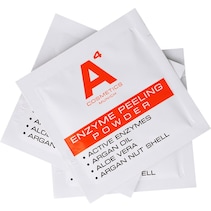
A4 Cosmetics
Facial cleansing
Skin care
Enzyme Peeling Powder

57.95 € 52.16 €
- 45.20 €
- 40.68 €
- 57.95 €
- 52.16 €

Lancôme
Cleansers & Masks
Facial care
Rose Sugar Scrub

26.95 € 24.26 €
- 21.02 €
- 18.92 €
- 26.95 €
- 24.26 €
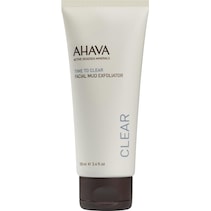
Ahava
Time To Clear
Facial care
Facial Mud Exfoliator

4.50 € 4.05 €
- 3.51 €
- 3.16 €
- 4.50 €
- 4.05 €
Serum
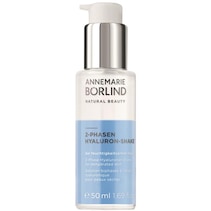
ANNEMARIE BÖRLIND
SPECIAL CARE
Facial care
2-Step Hyaluron Shake

24.95 € 22.46 €
- 19.46 €
- 17.51 €
- 24.95 €
- 22.46 €
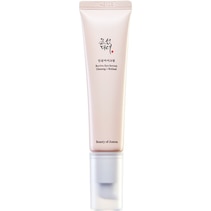
Beauty of Joseon
Care
Face
Revive Eye Serum Ginseng+Retinal

21.95 € 19.76 €
- 17.12 €
- 15.41 €
- 21.95 €
- 19.76 €
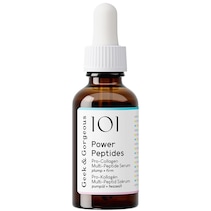
Geek & Gorgeous
101 Actives
Collections
Serum Power Peptides

15.95 € 14.36 €
- 12.44 €
- 11.20 €
- 15.95 €
- 14.36 €
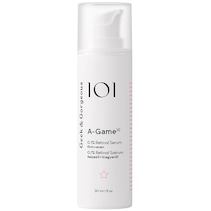
Geek & Gorgeous
101 Actives
Collections
A-Game 10 Serum

18.95 € 17.06 €
- 14.78 €
- 13.30 €
- 18.95 €
- 17.06 €
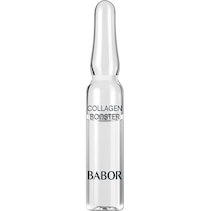
BABOR
Ampoule Concentrates FP
Facial care
Collagen Booster 7 Ampoules

39.95 € 35.96 €
- 31.16 €
- 28.04 €
- 39.95 €
- 35.96 €
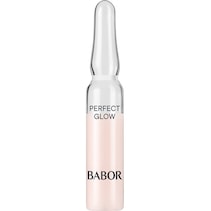
BABOR
Ampoule Concentrates FP
Facial care
Perfect Glow 7 Ampoules

36.95 € 33.26 €
- 28.82 €
- 25.94 €
- 36.95 €
- 33.26 €
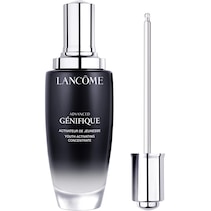
Lancôme
Génifique
Facial care
Advanced Génifique Serum

158.95 € 143.06 €
- 123.98 €
- 111.58 €
- 158.95 €
- 143.06 €
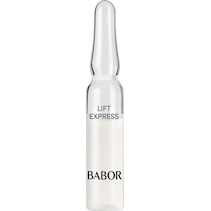
BABOR
Ampoule Concentrates FP
Facial care
Lift Express 7 Ampoules

39.95 € 35.96 €
- 31.16 €
- 28.04 €
- 39.95 €
- 35.96 €
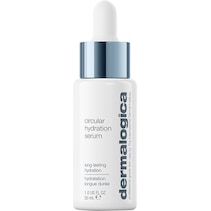
Dermalogica
Daily Skin Health
Skin care
Circular Hydration Serum

75.00 € 67.50 €
- 58.50 €
- 52.65 €
- 75.00 €
- 67.50 €
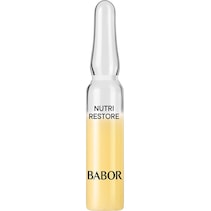
BABOR
Ampoule Concentrates FP
Facial care
Nutri Restore 7 Ampoules

36.95 € 33.26 €
- 28.82 €
- 25.94 €
- 36.95 €
- 33.26 €
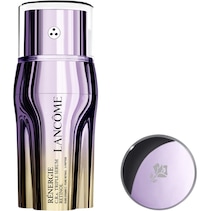
Lancôme
Rénergie
Facial care
C.R.x. Triple Serum Retinol

72.95 € 65.66 €
- 56.90 €
- 51.21 €
- 72.95 €
- 65.66 €
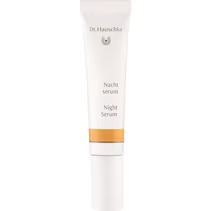
Dr. Hauschka
Facial care
Skin care
Night serum

4.30 € 3.87 €
- 3.35 €
- 3.02 €
- 4.30 €
- 3.87 €
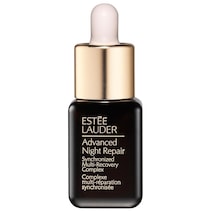
Estée Lauder
Serums
Skin care
Advanced Night Repair Synchronized Multi-Recovery Complex
Limited Edition

24.95 € 22.46 €
- 19.46 €
- 17.51 €
- 24.95 €
- 22.46 €
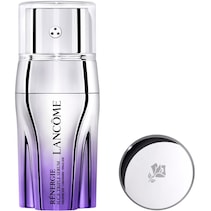
Lancôme
Rénergie
Facial care
H.C.F. Triple Serum

68.95 € 62.06 €
- 53.78 €
- 48.40 €
- 68.95 €
- 62.06 €
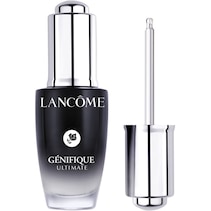
Lancôme
Génifique
Facial care
Advanced Génifique Ultimate Serum

59.95 € 53.96 €
- 46.76 €
- 42.08 €
- 59.95 €
- 53.96 €
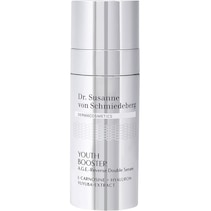
Dr. Susanne von Schmiedeberg
Serums
Facial care
Youth Booster A.G.E.-Reverse Double Serum

97.00 € 87.30 €
- 75.66 €
- 68.09 €
- 97.00 €
- 87.30 €
Moisturising care
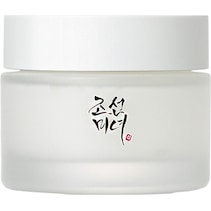
Beauty of Joseon
Care
Face
Dynasty Cream

29.95 € 26.96 €
- 23.36 €
- 21.02 €
- 29.95 €
- 26.96 €
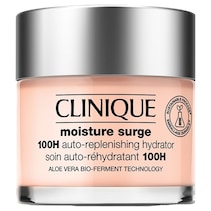
Clinique
Moisturiser
Skin care
100H Auto Replenishing Hydrator

25.95 € 23.36 €
- 20.24 €
- 18.22 €
- 25.95 €
- 23.36 €
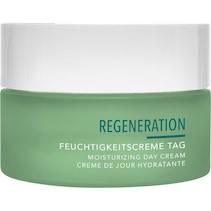
Charlotte Meentzen
Regeneration
Care
Moisturising cream day

26.40 € 23.76 €
- 20.59 €
- 18.53 €
- 26.40 €
- 23.76 €
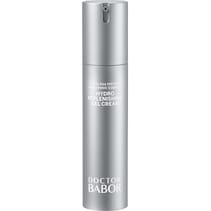
BABOR
Hydrating
Doctor BABOR
Hydro Replenishing Gel Cream

84.95 € 76.46 €
- 66.26 €
- 59.63 €
- 84.95 €
- 76.46 €
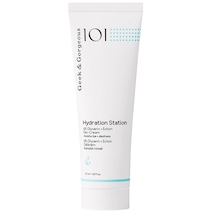
Geek & Gorgeous
101 Basics
Collections
Hydration Station Gel Cream

8.95 € 8.06 €
- 6.98 €
- 6.28 €
- 8.95 €
- 8.06 €
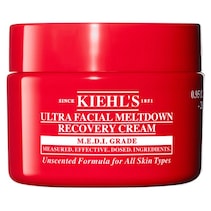
Kiehl's
Moisturiser
Facial care
Ultra Facial Meltdown Recovery Cream

24.95 € 22.46 €
- 19.46 €
- 17.51 €
- 24.95 €
- 22.46 €
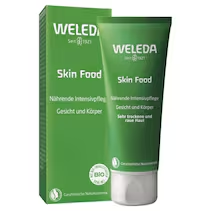
WELEDA
Intensive care
Facial care
Skin Food
Intensive care cream for face and body, for dry, rough and chapped skin

9.95 € 8.96 €
- 7.76 €
- 6.98 €
- 9.95 €
- 8.96 €
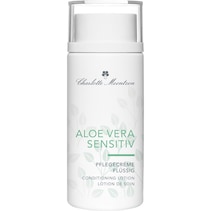
Charlotte Meentzen
Aloe Vera Sensitiv
Care
Care cream liquid

18.90 € 17.01 €
- 14.74 €
- 13.27 €
- 18.90 €
- 17.01 €
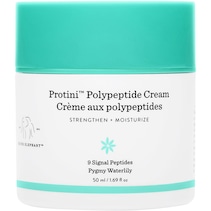
Drunk Elephant
Moisturiser
Facial care
Protini™ Polypeptide Cream

69.95 € 62.96 €
- 54.56 €
- 49.10 €
- 69.95 €
- 62.96 €
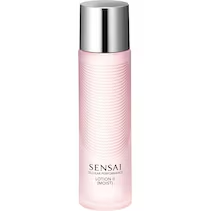
SENSAI
Cellular Performance - Basis Linie
Skin care
Lotion II (Moist)

45.95 € 41.36 €
- 35.84 €
- 32.26 €
- 45.95 €
- 41.36 €
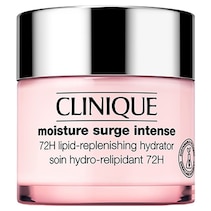
Clinique
Moisturiser
Skin care
72H Lipid-Replenishing Hydrator
Moisture Surge Intense

25.95 € 23.36 €
- 20.24 €
- 18.22 €
- 25.95 €
- 23.36 €
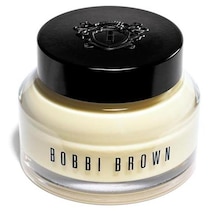
Bobbi Brown
Hydration
Skin care
Vitamin Enriched Day Cream

29.95 € 26.96 €
- 23.36 €
- 21.02 €
- 29.95 €
- 26.96 €

Kiehl's
Moisturiser
Facial care
Ultra Facial Cream

21.95 € 19.76 €
- 17.12 €
- 15.41 €
- 21.95 €
- 19.76 €
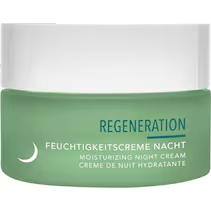
Charlotte Meentzen
Regeneration
Care
Moisturising cream night

29.90 € 26.91 €
- 23.32 €
- 20.99 €
- 29.90 €
- 26.91 €
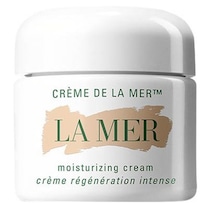
La Mer
The moisturising care
Moisturising care
Crème de La Mer

114.95 € 103.46 €
- 89.66 €
- 80.69 €
- 114.95 €
- 103.46 €
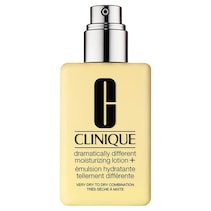
Clinique
3-Step skin care system
3-Phase system care
Dramatically Different Moisturising Lotion+

35.95 € 32.36 €
- 28.04 €
- 25.24 €
- 35.95 €
- 32.36 €
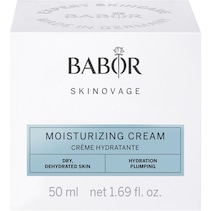
BABOR
Skinovage
Facial care
Moisturising Cream

67.95 € 61.16 €
- 53.00 €
- 47.70 €
- 67.95 €
- 61.16 €
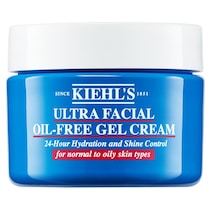
Kiehl's
Moisturiser
Facial care
Ultra Facial Oil-Free Gel Cream

21.95 € 19.76 €
- 17.12 €
- 15.41 €
- 21.95 €
- 19.76 €
Sun protection
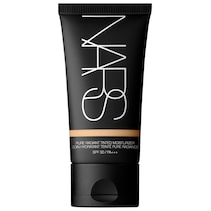
NARS
Foundation
Facial make-up
Pure Radiant Tinted Moisturiser SPF 30 PA++

50.95 € 45.86 €
- 39.74 €
- 35.77 €
- 50.95 €
- 45.86 €
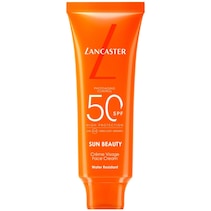
Lancaster
Sun Beauty
Sun care
Face Cream SPF50

39.95 € 35.96 €
- 31.16 €
- 28.04 €
- 39.95 €
- 35.96 €
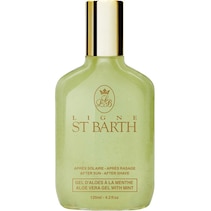
LIGNE ST BARTH
CORPS & BAIN
Care
Aloe Vera Gel with Mint After Sun - After Shave

46.95 € 42.26 €
- 36.62 €
- 32.96 €
- 46.95 €
- 42.26 €
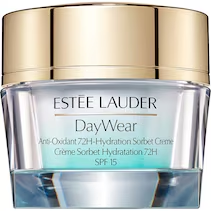
Estée Lauder
Facial care
Skin care
DayWear 72H Hydrator Sorbet Creme SPF 15

64.95 € 58.46 €
- 50.66 €
- 45.59 €
- 64.95 €
- 58.46 €
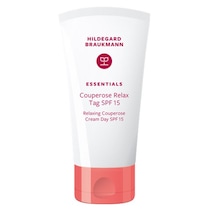
Hildegard Braukmann
Essentials
Care
Couperose Relax Day SPF 15

17.95 € 16.16 €
- 14.00 €
- 12.60 €
- 17.95 €
- 16.16 €
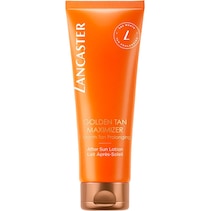
Lancaster
Golden Tan Maximizer
Sun care
After Sun Lotion

37.95 € 34.16 €
- 29.60 €
- 26.64 €
- 37.95 €
- 34.16 €
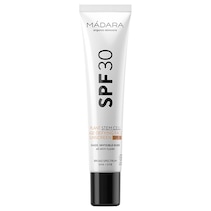
MÁDARA
Sun protection
Sun care
Plant Stem Cell Age-Defying Face Sunscreen SPF 30

32.95 € 29.66 €
- 25.70 €
- 23.13 €
- 32.95 €
- 29.66 €
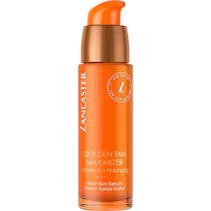
Lancaster
Golden Tan Maximizer
Sun care
After Sun Serum

45.95 € 41.36 €
- 35.84 €
- 32.26 €
- 45.95 €
- 41.36 €
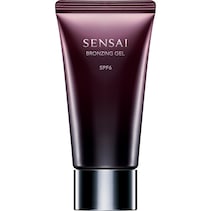
SENSAI
Foundations
Make-up
Bronzing Gel

45.95 € 41.36 €
- 35.84 €
- 32.26 €
- 45.95 €
- 41.36 €

BABOR
Protect Cellular
Facial care
Protect Cellular Mattifying Protector SPF 30
Mattifying Protector SPF 30

34.95 € 31.46 €
- 27.26 €
- 24.53 €
- 34.95 €
- 31.46 €
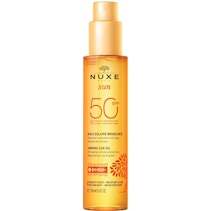
Nuxe
Sun
Facial care
Tanning Sun Oil SPF50

32.95 € 29.66 €
- 25.70 €
- 23.13 €
- 32.95 €
- 29.66 €
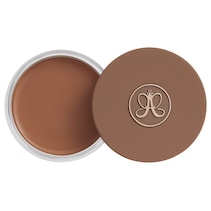
Anastasia Beverly Hills
Bronzer
Facial make-up
Cream Bronzer

37.95 € 34.16 €
- 29.60 €
- 26.64 €
- 37.95 €
- 34.16 €
What’s the best makeup for sensitive skin?
Sensitive skin reacts particularly intensely to makeup products. It is important to choose soothing and skin-friendly makeup that does not cause additional skin irritation.
A high-quality foundation with a light texture and without fragrances conceals redness and unevenness of the skin without being too rich. Powdery, oil-free textures that are only lightly applied to the surface of the skin are also ideal. A high-quality BB cream with make-up pigments is suitable as an alternative. It provides an oil-free foundation, hydrates the skin and also serves as UV protection for the day.
Lipsticks can also dry out sensitive lip skin. It is better to use special lipsticks for sensitive skin that moisturise the lips and last a long time.
You should place great importance on choosing the right eye makeup. Mascara and eyeliner for sensitive eyes as well as eyeshadow with a creamy texture are based on soothing formulas and ensure that you don’t have to go without a great eye look – despite having sensitive skin.
Make-up for sensitive skin
Make-up for sensitive skin
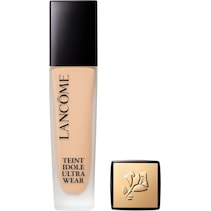
Lancôme
Facial make-up
Make-up
Teint Idole Ultra Wear

52.95 € 47.66 €
- 41.30 €
- 37.17 €
- 52.95 €
- 47.66 €
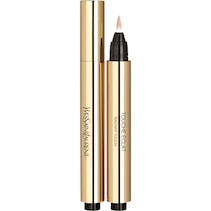
Yves Saint Laurent
Facial make-up
Make-up
Touche Éclat

41.95 € 37.76 €
- 32.72 €
- 29.45 €
- 41.95 €
- 37.76 €
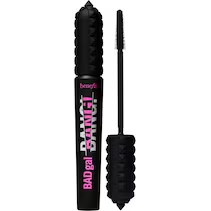
Benefit
Mascara
Eyes
BADGal Bang! Mascara

31.00 € 27.90 €
- 24.18 €
- 21.76 €
- 31.00 €
- 27.90 €
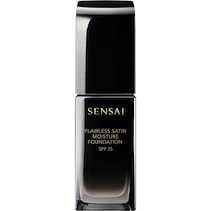
SENSAI
Foundations
Make-up
Flawless Satin Moisture Foundation

57.95 € 52.16 €
- 45.20 €
- 40.68 €
- 57.95 €
- 52.16 €
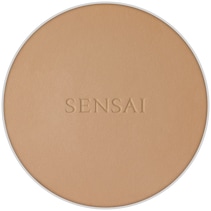
SENSAI
Foundations
Make-up
Total Finish SPF 10 Refill

48.95 € 44.06 €
- 38.18 €
- 34.36 €
- 48.95 €
- 44.06 €
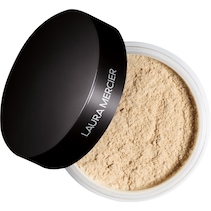
Laura Mercier
Powder
Facial make-up
Translucent Loose Setting Powder

49.95 € 44.96 €
- 38.96 €
- 35.06 €
- 49.95 €
- 44.96 €
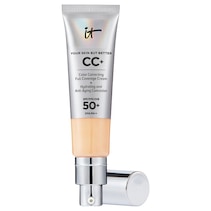
it Cosmetics
Moisturiser
Facial care
Your Skin But Better CC+ Cream SPF 50+

46.95 € 42.26 €
- 36.62 €
- 32.96 €
- 46.95 €
- 42.26 €
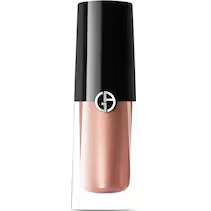
Armani
Eyes
Make-up
Eye Tint

34.95 € 31.46 €
- 27.26 €
- 24.53 €
- 34.95 €
- 31.46 €
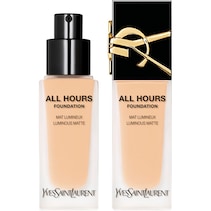
Yves Saint Laurent
Facial make-up
Make-up
Encre de Peau All Hours Foundation

56.95 € 51.26 €
- 44.42 €
- 39.98 €
- 56.95 €
- 51.26 €
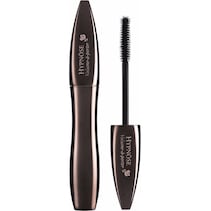
Lancôme
Eyes
Make-up
Hypnôse Volume-à-Porter

38.95 € 35.06 €
- 30.38 €
- 27.34 €
- 38.95 €
- 35.06 €
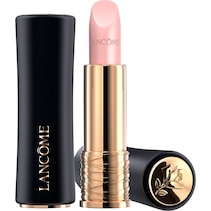
Lancôme
Lips
Make-up
L'Absolu Rouge Cream

41.95 € 37.76 €
- 32.72 €
- 29.45 €
- 41.95 €
- 37.76 €
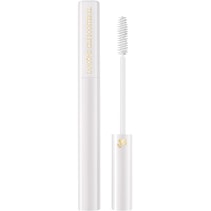
Lancôme
Eyes
Make-up
Cils Booster XL

37.95 € 34.16 €
- 29.60 €
- 26.64 €
- 37.95 €
- 34.16 €
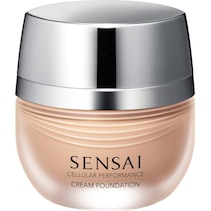
SENSAI
Cellular Performance Foundations
Make-up
Cream Foundation

101.95 € 91.76 €
- 79.52 €
- 71.57 €
- 101.95 €
- 91.76 €
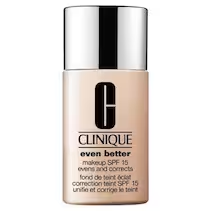
Clinique
Foundation
Make-up
Even Better Make-Up

46.95 € 42.26 €
- 36.62 €
- 32.96 €
- 46.95 €
- 42.26 €
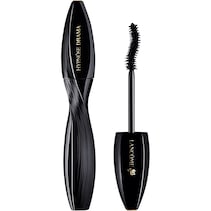
Lancôme
Eyes
Make-up
Hypnôse Drama Volume Mascara

38.95 € 35.06 €
- 30.38 €
- 27.34 €
- 38.95 €
- 35.06 €

Lancôme
Eyes
Make-up
Hypnôse Doll Eyes Mascara

38.95 € 35.06 €
- 30.38 €
- 27.34 €
- 38.95 €
- 35.06 €
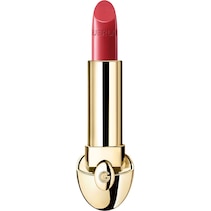
GUERLAIN
Lips
Make-up
Rouge G Satin

43.95 € 39.56 €
- 34.28 €
- 30.85 €
- 43.95 €
- 39.56 €
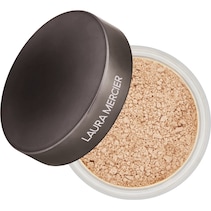
Laura Mercier
Powder
Facial make-up
Translucent Loose Setting Powder

25.95 € 23.36 €
- 20.24 €
- 18.22 €
- 25.95 €
- 23.36 €
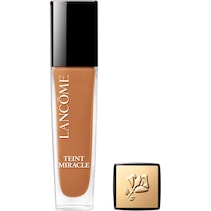
Lancôme
Facial make-up
Make-up
Teint Miracle

52.95 € 47.66 €
- 41.30 €
- 37.17 €
- 52.95 €
- 47.66 €
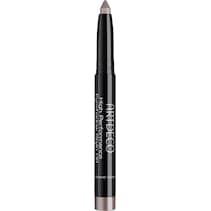
ARTDECO
Eye Shadow
Eyes
High Performance Eyeshadow Stylo
3 in 1 pencil: eyeshadow, eyeliner and eyeliner

12.95 € 11.66 €
- 10.10 €
- 9.09 €
- 12.95 €
- 11.66 €
Conclusion
There is no fixed definition for the skin condition known as “sensitive skin”. It often manifests itself in feelings of tightness, itching, scaling, redness and even inflammatory reactions. Sensitive skin can occur on any skin type. Gentle cleansing and skincare using low-irritant, anti-inflammatory and extremely skin-friendly products is important to soothe sensitive skin. Makeup – like skincare – should be applied very sparingly and specially formulated for the needs of sensitive skin. It is important to consistently avoid all chemical ingredients with irritation potential and to use sun creams with physical filters rather than chemical ones.


